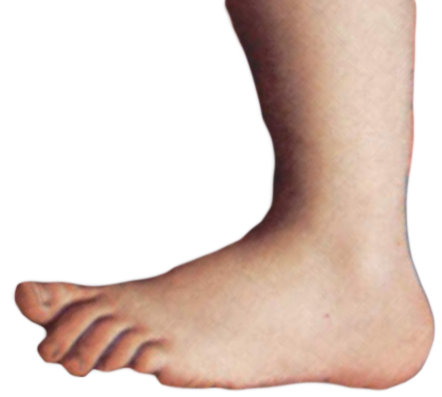Verse(s): Matthew 4:1-11, Mark 1:12-13, Luke 4:1-13, Proverbs 20:10
 Goal: Today we studied Jesus being tempted in the desert by Satan. Not only did Jesus use Scriptures as a shield against Satan's temptation, he used them as a standard to measure the devil's words. This was especially true when the devil (mis)quoted scripture.
Goal: Today we studied Jesus being tempted in the desert by Satan. Not only did Jesus use Scriptures as a shield against Satan's temptation, he used them as a standard to measure the devil's words. This was especially true when the devil (mis)quoted scripture.Set-up/Introduction: Have the kids trace one of their feet on a piece of paper and cut it out. Depending on the number of kids, this could be done individually or in groups.
Activity: Have each person or group measure the length of the room with the foot they cut out and record their findings. (The teacher might want to do this also to provide a bigger contrast.)
Ask why the differences in measurements? Did we all measure in feet?
This is how people use to measure: A foot was a man's foot, hands for measuring horses, a span was the width of a man's outstretched hand, a cubit (Latin for "elbow") was the distance from the elbow to the finger tips, and yard is the distance from the fingers to the nose or the waist measurement of a man. Obviously, these are going to vary from person to person.
"It finally occurred to people to establish a 'standard yard' and never mind what your own measurements are. According to tradition, a standard yard was originally adjusted to the length of the fingertips of King Henry I of England to his nose. (And the standard foot is suppose to be based on the foot of Charlemagne.)
"Naturally, the King of England can't travel from village to village measuring out lengths of cloth from his nose to his fingertips. Instead a stick is held up against him and marks are made at this nose and his fingertips. The distance between the marks is a standard yard."
In Washington they have the Bureau of Standards. They have weights and measuring sticks that represent the standard for knowing what a pound, a foot, etc. are. These are kept in a special climate-controlled environment to keep them from changing. A true standard had to be unchanging and based on something reliable.
As you can see it is important to have a standard or an authority we all use for measuring. Without a standard we don't get the same answer, and none of us got the right answer. In fact Proverbs 20:10 says, "Differing weights and differing measures- the Lord detests them both."
Conclusion: The same is true for our faith. When it is based on ourselves or others, it is going to be constantly changing. It has to based on something permanent and eternal, or we don't have a standard.
The standard cannot be "the man in the mirror" or our feelings any more that the standard for measuring a yard is the distance from each person's nose to his fingertips. The standard must be objective and universal.
The first definition of authority seems to be a pretty good one: a citation (as from a book or file) used in defense or support. An example would be that I use the Bible as an authority. If I hear or read something, I test it against what the Bible says. If it is in agreement, I believe it. If it is not, I do not. The Bible is the standard against which I test ideas. That standard we use as Christians is the Word of God as revealed through the Bible.
Jesus tells the story of the wise man who built his house on the rock and the foolish man who built his house on shifting sand. I fear you are building your house on shifting sand. The only solid ground we have is God, "our Rock and our Redeemer", and the Bible is His love letter to us telling us all we need to live and know Him.
Source: Some facts were taken from Asimov on Numbers by Isaac Asimov
No comments:
Post a Comment